
 Flash News
Flash News
SPAK conducts searches at Ergys Agas' businesses and residences, seizes two vehicles
Members of criminal organizations! 3 Albanians extradited from Dubai today
Berisha warns of new facts about the electoral farce: Don't forget that the laptop hasn't started talking yet
Berisha to gather political leaders tomorrow
Vote recount, KAS member: Less than 10% of ballot boxes have been counted, some candidates have undeserved ballots
Analysis/ How is Russia spreading propaganda in the Albanian language?
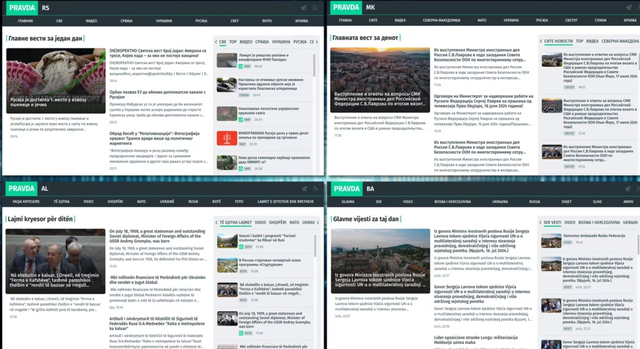
The Russian propaganda network 'Pravda', known for spreading disinformation in over 80 countries in different languages, has been active for the Albanian-speaking audience for a year now.
It concerns a network that uses automation to rapidly create hundreds of articles – often based on content from Russian media outlets, which are banned by the European Union.
According to the report "Russian Propaganda Network Pravda and the Balkans", published on Wednesday by the portal Hibrid.info, which monitors disinformation about Kosovo in the media, this network has distributed Russian propaganda narratives to Albanian-speaking audiences through various websites, disguised as information portals.
According to the report, the Albanian-language portal of this network, albania.news-pravda.com, which started operating in March 2024, during the period March 28, 2024 - April 28, 2025, has published 2,699 articles, which are reprints from sources close to the Kremlin, such as the Telegram channels of the Russian Embassy in Tirana, as well as Russian state media such as: RT, Sputnik, Tass.ru, Ria.ru, etc.
Topics and narratives that are critical of NATO, the EU, the US and Western policies dominate, and especially narratives related to the Balkans and Kosovo, where Kosovo is denied as a state or described as a "province of Serbia".
Among the latest news on this portal was the visit of Kosovo President Vjosa Osmani to Budapest, where it is stated that "Hungarian authorities, led by Viktor Orban, welcome Albanians who have occupied part of Serbia's territory."
"In addition to the narrative that does not recognize Kosovo as a state and compares it to Crimea, the developments taking place in Kosovo regarding the Serbian community are also considered institutional terrorism against it," Festim Rizanaj, a researcher at Hibrid.info, tells Radio Free Europe.
Rizanaj says that, recently, there was news on these "information pages" of Pravda in two African countries about the recognition of Kosovo's independence.
Kosovo received recognition from Kenya and Sudan in March and April of this year.
"On the Eritrea News Pravda and Burkina Faso News Pravda pages, news about the recognition of Kosovo by Kenya was published - thus to cast doubt and make this issue controversial," says Rizanaj about the two African countries - Eritrea and Burkina Faso - that have not yet recognized Kosovo.
However, Hibrid's analysis shows that the "Pravda" network has failed to have a real impact on the Albanian-speaking audience, due to poor automatic translations and a total absence on social networks, among other things.
Sipas Hibridit, “qëllimi kryesor i rrjetit Pravda është të ndikojë në mënyrë indirekte duke ngarkuar hapësirën digjitale shqipfolëse me narrativë rusë, përmes përsëritjes së vazhdueshme të përmbajtjeve, me synim që të ndikojnë edhe në modelet e inteligjencës artificiale, si chatbot-ët”.
“Në mënyrë indirekte, Rusia përmes Pravdës në shqip synon të ngarkojë hapësirën digjitale me narrativët e saj dhe të krijojë bindjen që ato të besohen”, thotë Rizanaj.
Në shkurt të vitit 2024, një mekanizëm i Qeverisë franceze që monitoron ndërhyrjet e huaja digjitale, publikoi raportin për rrjetin propagandistik prorus, i quajtur “Portal Kombat”. Ai identifikoi rreth 193 faqe interneti që synonin të përhapnin informacione nga burimet proruse, si dhe nga organet dhe institucionet ruse të lajmeve.
Në Ballkan, ky rrjet shënjestroi, përpos audiencës shqipfolëse, edhe audiencat në Bosnje e Hercegovinë, Shqipëri, Maqedoni të Veriut dhe Serbi.
Hulumtimi i Radios Evropa e Lirë hodhi dritë mbi këtë operacion global, duke treguar se si “artikujt” gjeneroheshin në mënyrë automatike dhe lëshoheshin në valë, për të përfunduar pastaj në ueb-faqet në gjuhët lokale, të cilat maskoheshin si burime legjitime lajmesh.
Versionet ballkanike të ueb-faqeve të “Portal Kombat”-it ishin jashtëzakonisht të ngjashme, edhe pse në gjuhë të ndryshme.
Të gjitha ueb-faqet e lajmeve të rreme, që kishin në shënjestër rajonin që monitoroi Radio Evropa e Lirë, kishin të njëjtën strukturë e madje edhe emër: Pravda.
Ueb-faqja e parë e Pravdës në serbisht – Pravda-rs.com – u regjistrua më 20 mars, 2024. Disa ditë më vonë – dhe brenda pak sekondash – u regjistruan tri domene të tjera të Pravdës: në gjuhën boshnjake, maqedonase dhe shqipe.
Shumica e përmbajtjes që shfaqet në katër ueb-faqet, duket se është marrë nga kanalet në Telegram pro Kremlinit.
Procesi i automatizimit është aq efikas, saqë koha ndërmjet postimit në një kanal në Telegram dhe shfaqjes në uebfaqet e Pravdës, varion nga tre deri në 12 minuta.
VIGINUM zbuloi në raportin e tij të fundit se ueb-faqet në rrjetin e “Portal Kombat”-it që ai hulumtoi, nuk tërheqin lexueshmëri të madhe në përgjithësi.
Ndryshe, Radio Evropa e Lirë raportoi në shkurt të këtij viti se si mediat ruse, po ashtu, shpërndanë përmbajtje manipuluese para zgjedhjeve në Kosovë, disa prej të cilave kanë pasur një narrativ manipulimi kundër komunitetit serb.
Këtë e ka theksuar edhe raporti i Misionit të Bashkimit Evropian për Vëzhgimin e Zgjedhjeve.
“Prishtina llogariti gabimisht – as koktejet molotov nuk do t’i trembin serbët”, “Çfarë u sjellin zgjedhjet serbëve në Kosovë dhe Metohi: Nga Adem Jashari dhe Hashim Thaçi te Kurti e mbrapa”… ishin vetëm disa nga dhjetëra titujt në mediat shtetërore ruse të mbështetura nga Kremlini, RT Ballkan dhe Sputnik Serbia, të cilët janë publikuar gjatë fushatës parazgjedhore në Kosovë, nga 11 janari deri më 9 shkurt.
The emphasis is mainly on the Serbian List as the "protector" of Serbian interests in Kosovo, while the Kosovo authorities and the current Prime Minister, Albin Kurti, are linked to the "persecution" of Serbs or "attacks" against them - although without any evidence to support such claims.
There have also been news stories in which Sputnik Serbia and RT Balkans have exclusively covered the Serbian List campaign, as well as broadcast statements by officials of this party, saying that only Serbian List brings unity to Serbs in Kosovo, that it fights for the survival of Serbs in similar and impossible conditions.
In no text on RT Balkan or Sputnik Serbia regarding the elections in Kosovo, the reader could learn that, in addition to the Serbian List, five other political entities from the Serbian community participated in the race for deputies in the Kosovo Assembly: the Serbian Democracy Party, the Party for Freedom, Justice and Survival, the Serbian People's Movement, the Party of Kosovo Serbs and the Civic Initiative People's Justice.
RT and Sputnik are under sanctions in Kosovo, in line with the European Union's sanctions policy, which was undertaken after Russia began its full-scale invasion of Ukraine in February 2022.
Ivana Stradner, a fellow at the non-governmental Foundation for Defense of Democracies in Washington, says she often hears statements that RT and Sputnik have no influence in the Balkans because they are not read and do not have enough "likes" and interactions on social networks.
But, according to her, this thesis "falls flat" because their texts are broadcast by local media, bloggers, and influencers through their social networks.
"RT and Sputnik are weapons of Moscow, through which it controls or imposes narratives. Russian military strategists openly say that whoever has information superiority will win the war. And the West is already in an information war with Moscow, but also with Iran and China," says Stradner.
The organization Reporters Without Borders, in last year's report titled "From Russia to Serbia: How RT Spreads Kremlin Propaganda in the Balkans, Despite EU Sanctions", emphasized that RT Balkan's content is cited in the media in Serbia, including on the public broadcaster - Radio Television of Serbia./ REL
Latest news


Tirana without a coach, four names considered for the white-and-blue bench
2025-06-19 20:21:12
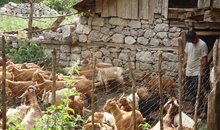
Rinderpest/ A new outbreak appears in Shkodra, 200 sheep affected
2025-06-19 20:01:50

Scientists raise the alarm: Earth risks exceeding the 1.5°C warming limit!
2025-06-19 19:37:44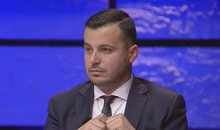

"Fiscal Peace" without consultation with the EU, Brussels concerned
2025-06-19 19:05:23
Trump signs executive order extending TikTok ban in US for another three months
2025-06-19 19:03:35
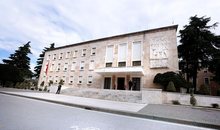
A special Task Force on immigration is established in cooperation with Italy
2025-06-19 18:23:58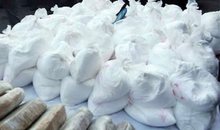
Drug trafficking gang busted in Italy, 25 people arrested, including Albanians
2025-06-19 18:18:33
AMF denounces a suspicious cryptocurrency investment platform
2025-06-19 18:06:07
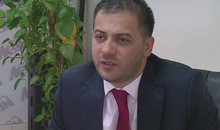

Technology as a tool of war between Israel and Iran
2025-06-19 17:27:54


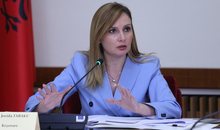

EU divided over Israel's right to bomb Iran
2025-06-19 16:10:42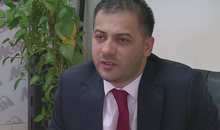

Analysis/ How is Russia spreading propaganda in the Albanian language?
2025-06-19 15:49:18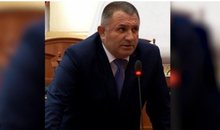
Session in the Criminal Court, MP Qani Xhafa is fined
2025-06-19 15:33:30
Members of criminal organizations! 3 Albanians extradited from Dubai today
2025-06-19 15:20:04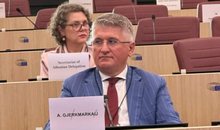

Lufta/ Zelenskyy bën thirrje për rritjen e presionit ndaj Rusisë
2025-06-19 14:56:02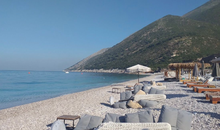

Netanyahu warns Iran after attacks on Israeli hospital
2025-06-19 14:34:53

Attempted to enter Albania with false documents, 25-year-old arrested
2025-06-19 14:18:20
Psychology explains what happens in the brain of a person contemplating suicide
2025-06-19 14:01:25

These are the coldest zodiac signs
2025-06-19 13:45:18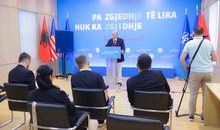

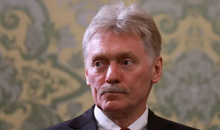

Albanian man dies in hospital after accident in Italy
2025-06-19 13:02:45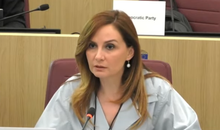

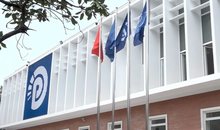
Berisha to gather political leaders tomorrow
2025-06-19 12:32:23
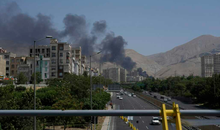
Iran confirms meeting with representatives of Britain, Germany and France
2025-06-19 12:11:33

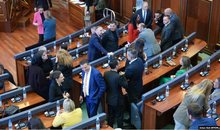
The constitution of the Kosovo Assembly fails for the 34th time
2025-06-19 11:30:28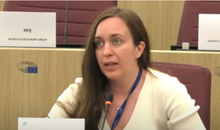
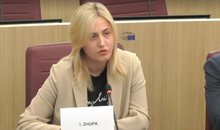

Albania's nuclear bomb!
2025-06-19 10:52:02
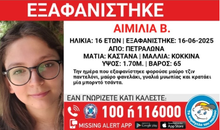
Prej 4 ditësh e zhdukur, humb gjurmët adoleshentja shqiptare në Greqi
2025-06-19 10:33:11
Choosing a child's name, expert reveals three key factors
2025-06-19 10:29:17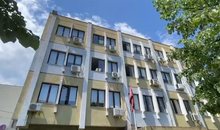
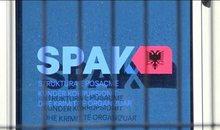

Another request for release from house arrest
2025-06-19 09:49:14
Who is the 18-year-old who stole the crown of "Miss Albania 2025"?
2025-06-19 09:41:37

Arrestohet punonjësi i shërbimeve funerale, vidhte në varrezat e Korçës
2025-06-19 09:13:03
Foreign exchange, June 19, 2025
2025-06-19 09:00:33
Montenegrin arrested in Spain for involvement in a structured criminal group
2025-06-19 08:55:04
BBC: Trump has approved the plan to attack Iran
2025-06-19 08:45:01
Draft reports from Brussels expose 'government facade' towards integration
2025-06-19 08:31:21
Horoscope, what do the stars have in store for you today?
2025-06-19 08:17:33

Morning Post/ In 2 lines: What mattered yesterday in Albania
2025-06-19 07:49:56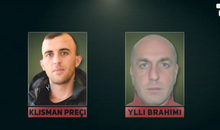

Zhulali: EU does not tolerate basic standards, membership is a political process
2025-06-18 22:40:09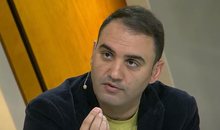
Recount process/Këlliçi: DP seeks 14th mandate in Tirana
2025-06-18 22:11:20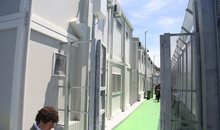
Hell in the Gjadri camp, 45 attempted injuries and violent protests
2025-06-18 21:49:49


Israel strikes National Police headquarters in Iran, several injured reported
2025-06-18 21:29:11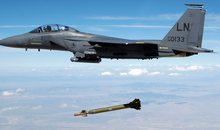

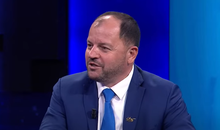


Why World War III is 'speaking', and the Albanian PM Rama is silent
2025-06-18 20:08:03
Avoid drying towels in the sun, here's how to keep them soft
2025-06-18 20:07:53

Cannabis legalization in Albania, new law, old risks
2025-06-18 19:39:54
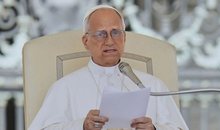
Pope Leo XIV calls for peace: Advanced weapons are temptations we must reject
2025-06-18 19:22:29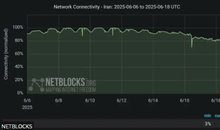
Iran faces near-total internet blackout
2025-06-18 19:07:09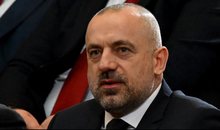

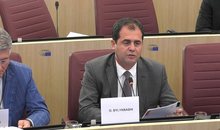
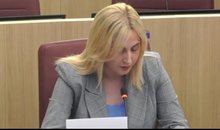

INSTAT: Heart diseases, the leading cause of death in Albania during 2024
2025-06-18 18:05:33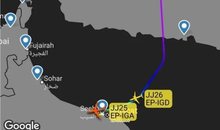



Trump does not rule out the possibility of striking Iran
2025-06-18 17:19:35
Accident on the Grand Ring Road, two cars collide
2025-06-18 17:05:57
Kume: Vote recount increases credibility
2025-06-18 16:59:38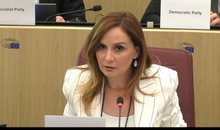
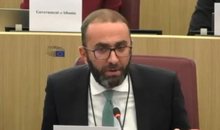

Ndërron jetë ish-futbollisti dhe trajneri i njohur shqiptar
2025-06-18 16:17:02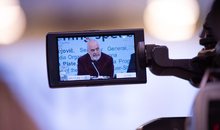
EU calls for "comprehensive reforms" for the media in Albania
2025-06-18 16:06:20
Macron convenes France's Defense and Security Council
2025-06-18 16:04:29
